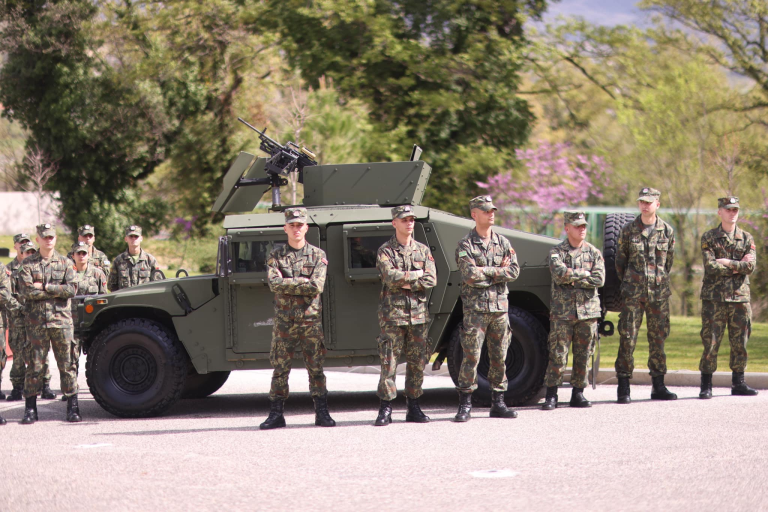
Companies interested in investing in the military arms manufacturing industry in the Republic of Albania are eligible for benefits and incentives such as tax exemptions under the law. Experts told Faktoje that public and private investments in the production of combat weapons can create jobs and indirectly boost economic output, but caution is needed when it comes to incentives for this sector.
Eno Luarasi
A company planning to invest in the military manufacturing industry must make an initial investment of at least 25 million Euros and will be exempt from taxes for the first 10 years. The draft law clarifies that during the first decade, utility expenses such as water and electricity will also be covered.

Entities interested in investing in the military arms manufacturing sector in the Republic of Albania and committing at least 25 million Euros as an initial investment qualify for benefits and incentives.
Economics expert Eduart Gjokutaj informed Faktoje.al that public and private investments in the production of military weapons, which are classified as defense sector expenses, can directly generate jobs and also enhance economic output indirectly by disseminating technology and human capital into the civilian economy.

Calculations show that for every 1 lek (Albanian Lek) spent in this industry, there is a 1.3 increase in revenue, leading to a high gross margin that is less influenced by external and internal factors compared to other industries. However, the incentives and special treatment for this industry, in contrast to others, could lead to future market distortions and increased costs for private companies. – Gjokutaj explains.
Gjokutaj advises caution with regard to the incentives provided to this sector.
‘The main concern is that if investments do not produce tax revenues for the budget, then the invested funds, regardless of their initial appeal, will have a limited economic impact. In this context, the 10-year tax exemptions—including those for profit tax, customs duties, national taxes, and a reduced VAT rate—do not provide a substantial economic benefit to the budget, especially given that this industry operates with little competition and has a guaranteed, profitable market.” – he argues.
But what is expected to be produced by this company, which is exempt from all taxes for 10 years under this draft law?
Expert Redion Qirjazi points out that the first step should be a feasibility study to determine which types of military products could give Albania a competitive edge in the global arms and ammunition market.

‘Naturally, there is high demand for light munitions as well as mortar and artillery shells, as recent conflicts (Gaza, Ukraine) have shown their rapid consumption. I think this would be a promising area for Albania to start with, given our experience in manufacturing munitions of various calibers, existing factories that can be easily adapted for this purpose, lower technological requirements, and a steady cyclical demand.
But how is KAYO expected to operate? Will it be fully state-owned or involve private partnerships?
According to Security Expert Redion Qirjazi, global practices vary widely, ranging from 100% state ownership to 100% private ownership.
‘Naturally, a company that is fully state-owned would ensure a higher level of control but might restrict innovation typically associated with private management and lead to lower economic efficiency. On the other hand, a privately owned arms company would require more stringent oversight from state institutions to ensure legal compliance and avoid trade practices that could harm national security interests. Personally, I believe it would be more advantageous for Albania to begin with a company where at least 51% of the shares are owned by the Albanian state.’ – he explains.
Former officials from the Ministry of Defense told Faktoje.al that revitalizing the military industry is entirely feasible, as the machinery is already available and only needs to be adapted for new products. During the communist era, Albania produced a wide range of munitions, from light ammunition like pistol and automatic rifle cartridges to larger calibers and infantry weapons of Russian and Chinese manufacture.





